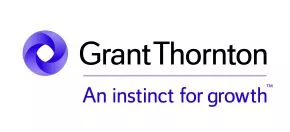In the 2015 federal budget, the Conservative government announced it would be reducing the small business tax rate over the next four years—which, at the time, was good news for many professional corporations. Since the recent federal election, however, that good news has come into question. So now could be a good time to take advantage of options available in 2015 prior to potential, but as yet unannounced, changes in 2016.
While the new Liberal government has outwardly stated it plans to go ahead with the reduction in the small business tax rate—it has also said that the government "will ensure that Canadian-Controlled Private Corporation (CCPC) status is not used to reduce personal income tax obligations for high-income earners."
Until recently, professionals regulated by a governing body—such as lawyers, engineers, doctors, and dentists—have enjoyed many tax benefits by forming professional corporations. While no one knows for sure how those benefits will change in the near future, many believe they will—since most professionals are considered "high-income earners". Here are a few changes that could be coming in the next federal budget:
A new definition
The government may opt to follow in the Quebec government's footsteps and change small business deduction eligibility criteria. This would mean, in addition to the current requirements, a corporation would have to employ at least three full-time staff members year-round or have 25% of its activities in the manufacturing or primary sector of agriculture, forestry fishing and mining.
Such a move would greatly impact professional corporations that, until now, have been taking advantage of low corporate tax rates and tax deferral opportunities that allow them to retain surplus funds. The new definition would essentially prevent many of these corporations from qualifying for the small business tax rate completely and void the tax benefits of legal structures that have been set up to multiply the small business deduction.
The eradication of income splitting
Income splitting is another significant tax benefit that may soon be restricted. Right now, many professional corporations (in certain professions and certain jurisdictions) experience considerable tax savings by paying dividends to a lower income spouse or adult child—either directly or through a family trust.
There are some rumours that the Liberal government may target these income splitting measures in the new year. With the top federal personal tax rate expected to increase from 29 percent to 33 percent in 2016, this could result in a lot of extra tax owing for professionals who simultaneously no longer benefit from the small business tax deduction.
Until we know for certain which new measures will be outlined in the next federal budget, it may be best to make hay while the sun shines and take whatever steps necessary to maximize your tax benefits in 2015.
Some ways you can do this include
- claiming the maximum benefit possible from the small business tax deduction;
- maximizing current income splitting benefits, as they apply to you;
- considering various forms of compensation-based planning, including evaluating both your personal and business situations; and
- accelerating the recognition of income and capital gains for 2015, if you expect your personal income to be greater than $200,000 in 2016.
As we all wait for the Liberal government to announce any potential tax changes in 2016, it's important to remember that, while the horizon may look uncertain right now, once the new information comes to light so will effective tax planning strategies. So sit tight—and enjoy your 2015 tax advantages for a little while longer.
The content of this article is intended to provide a general guide to the subject matter. Specialist advice should be sought about your specific circumstances.


